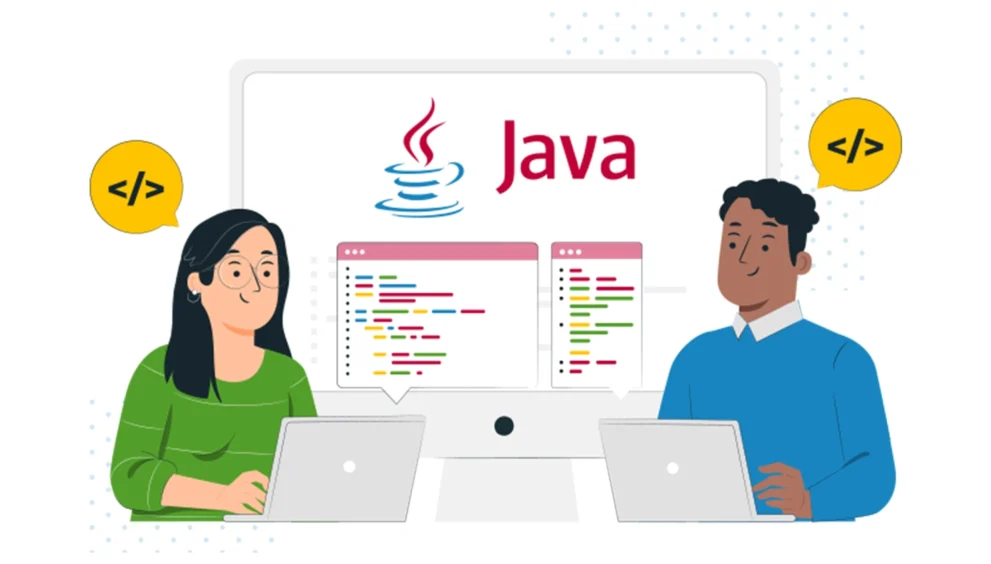Top tips to ensure you’re hiring the right Java developer
Are you on the hunt for a qualified Java developer? Finding the right candidate with the perfect blend of technical skills and cultural fit can be a challenging task. Whether you are looking to build a new project from scratch or improve your existing systems, having the right person on board can make all the difference.
However, with the sheer number of Java developers in the market, how do you ensure that you are making the right choice?
That’s where we come in. Our top tips for hiring a Java developer will provide you with a comprehensive guide to identifying and selecting the best fit for your team. We’ll cover everything from essential skills to look for, conducting technical interviews, checking references, assessing cultural fit, and offering competitive compensation and benefits.
By implementing these tips to Hire Java Developers, you’ll be able to create a hiring strategy that allows you to evaluate each candidate with confidence and make an informed decision. So let’s dive in and find your perfect Java developer!
Skills to Look for When Hiring a Java Developer
When hiring a Java developer, there are several skills that you should look for to ensure that they have the necessary expertise to deliver high-quality work. Here are some of the essential skills to consider:
Core Java concepts
The core Java concepts are the building blocks of any Java application. It is essential to ensure that the Java developer you are hiring has a strong foundation in these concepts, which include data types, control structures, loops, and arrays.
Data types refer to the different types of data that can be stored in Java, such as integers, characters, and strings. Control structures and loops are used to control the flow of a program, while arrays are used to store multiple values in a single variable.
Additionally, the developer should be familiar with Java’s syntax and semantics, which are the rules and conventions for writing code in the language.
Frameworks and libraries
Frameworks and libraries are essential tools for Java developers, as they provide pre-written code and functionalities that can be used to build applications quickly and efficiently.
Spring, Hibernate, and Struts are some of the popular frameworks used in Java development. Spring provides a wide range of features for building enterprise-level applications, Hibernate is used for database management, and Struts is used for developing web applications.
Furthermore, developers should have experience in using tools such as Eclipse and NetBeans, which are integrated development environments (IDEs) used for writing, debugging, and testing Java code.
Object-oriented design principles
Object-oriented design is a fundamental concept in Java programming. It is a programming paradigm that focuses on creating objects that have properties and behaviors.
Developers should have experience with the principles of object-oriented design, such as encapsulation, inheritance, and polymorphism. Encapsulation refers to the practice of hiding the implementation details of an object, while inheritance enables developers to create new classes based on existing ones.
Polymorphism allows objects to change shape depending on their context.
Multithreading and concurrency
Java is known for its ability to handle multithreading and concurrency, which are essential for developing applications that can handle multiple tasks simultaneously. Developers should be familiar with concepts such as thread safety, synchronization, and locking.
Thread safety ensures that multiple threads can access a resource without causing conflicts, while synchronization is used to coordinate the execution of multiple threads. Locking is used to ensure that only one thread can access a resource at a time.
Database management and SQL
Java developers should have experience with database management and SQL. They should be able to work with popular databases such as MySQL, Oracle, and PostgreSQL. They should be able to create, read, update, and delete data from databases, as well as write SQL queries to retrieve data.
Additionally, developers should be familiar with Object-Relational Mapping (ORM) frameworks such as Hibernate, which provide an abstraction layer between the application and the database.
Test-driven development
Test-driven development (TDD) is an approach to software development in which developers write automated tests before writing the code. This approach ensures that the code is thoroughly tested and meets the required specifications.
Look for candidates who have experience with popular testing frameworks such as JUnit and Mockito. JUnit is a popular testing framework used for testing Java applications, while Mockito is used for creating mock objects to simulate complex behavior in a controlled environment.
Soft skills
Soft skills such as communication, teamwork, and problem-solving are essential for any Java developer. Look for developers who can work well with others, can communicate effectively, and can solve problems efficiently.
Communication is essential for ensuring that team members can collaborate effectively, while teamwork is essential for ensuring that team members can work together to achieve a common goal. Problem-solving skills are essential for identifying and resolving issues that arise during the development process.
Conducting Technical Interviews
Once you’ve identified potential candidates for the role of Java developer, the next step is to conduct technical interviews to assess their skills and experience. Here are some tips to help you conduct effective technical interviews:
- Before the interview, prepare a list of technical questions to ask candidates. The questions should cover the essential skills that you’re looking for in a Java developer.
- Ask open-ended questions that require candidates to provide detailed answers. This will help you assess their knowledge and understanding of Java concepts.
- Include practical exercises in the interview process to test candidates’ coding abilities. You can provide a coding challenge or ask them to write code on a whiteboard.
- Ask candidates to provide examples of how they have solved real-world problems using Java. This will help you assess their problem-solving skills and their ability to apply Java concepts in a practical setting.
- After the interview, provide feedback to candidates. This will help them understand their strengths and weaknesses and give them an opportunity to improve their skills.
Checking References and Past Experience
Checking references and past experience is a crucial step in hiring the right Java developer. It helps you ensure that the candidate has the necessary skills and experience to meet your project requirements. Here are some tips for checking references and past experience:
- Contact the candidate’s previous employers to verify their employment history, job titles, and responsibilities. This will help you understand their past experience and achievements.
- Ask previous employers to verify the candidate’s technical skills. You can ask for examples of projects they’ve worked on, the tools and technologies they’ve used, and the challenges they’ve faced.
- Ask previous employers about the candidate’s work ethics, including their reliability, punctuality, and ability to work in a team. This will help you understand their work habits and determine if they’re a good fit for your organization.
- Verify the candidate’s educational qualifications by contacting their educational institutions. This will help you ensure that the candidate has the necessary educational background to meet your project requirements.
- Perform a background check to ensure that the candidate doesn’t have a criminal record. This will help you protect your company from potential legal liabilities.
Assessing Cultural Fit
Assessing cultural fit is an important step in ensuring you hire the right Java developer for your organization. Cultural fit refers to the candidate’s compatibility with the company’s culture and values. Here are some guidelines for determining cultural fit:
- Define your company’s culture and values before you start the hiring process. This will help you determine the type of candidate you’re looking for and ensure that they align with your company’s culture.
- Observe the candidate’s non-verbal cues during the interview process, such as their body language and tone of voice. This can give you insights into their personality and how they would fit into your company’s culture.
- Ask behavioral questions that relate to your company’s culture and values. For example, you could ask how the candidate has handled a situation where they disagreed with a colleague or how they have dealt with a challenging project in the past.
- Use personality assessments to determine if the candidate’s personality aligns with your company’s culture. This can help you identify potential conflicts before hiring the candidate.
Offering Competitive Compensation and Benefits
Offering competitive compensation and benefits is crucial for attracting and retaining top Java developers. Here are some tips for ensuring that your compensation and benefits package is competitive:
- Research industry standards for compensation and benefits to ensure that your package is competitive. This can help you attract top talent and retain your current developers.
- Offer a competitive salary that aligns with industry standards and the candidate’s level of experience. This will show the candidate that you value their skills and experience.
- Provide health benefits such as medical, dental, and vision insurance to your employees. This can help attract and retain top talent who value health benefits.
- Offer retirement plans such as 401(k) or pension plans to your employees. This can help attract and retain experienced developers who are looking for long-term career opportunities.
- Provide professional development opportunities such as training programs, conference attendance, and certifications. This can help attract and retain developers who value career growth and development.
- Flexible work arrangements, such as remote work options or flexible schedules, are available. This can help attract and retain developers who value work-life balance.
- Provide other incentives such as bonuses, stock options, or profit-sharing plans. This can help attract and retain top talent who are motivated by financial rewards.
Conclusion
Hiring a dedicated Java developer requires a comprehensive approach that involves assessing technical skills, conducting thorough interviews, checking references and past experiences, assessing cultural fit, and offering competitive compensation and benefits.
By implementing these tips, you can ensure that you’re hiring the right Java developer for your organization. It’s essential to remember that hiring a Java developer is a significant investment, and taking the time to find the right fit can save you time and resources in the long run.
With the right skills, experience, and cultural fit, you can hire dedicated Java developers that will be a valuable asset to your team and help you achieve your business goals.






